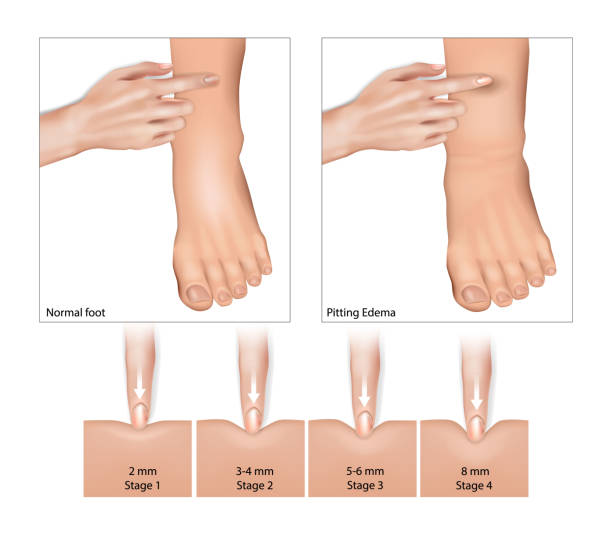How Do Beta-Blockers Work to Support Heart Health and Reduce Strain?

Beta-blockers are a medication that is frequently used for cardiovascular disease, most commonly high blood pressure and cardiovascular disease. Beta-blockers are used to decrease the workload of the heart, decrease blood pressure, and prevent excessive strain on the heart. Having knowledge about how they work, their advantages, and their disadvantages enables an individual to make an informed decision regarding their cardiovascular health.
Among the beta-blockers that have been introduced into the general market, Metpure XL 25 Tablet and S-metoprolol stand out for their therapeutic efficacy against cardiovascular disease.
What Are Beta-Blockers?
Beta-blockers, or beta-adrenergic blockers, are drugs that inhibit the action of adrenaline (epinephrine) on the heart. They do this to slow down the heart rate and lower blood pressure, lowering the overall burden on the cardiovascular system. They are most frequently used in high blood pressure, angina (chest pain), arrhythmias, and heart failure.
How Do Beta-Blockers Work?
Beta-blockers do this by binding to beta-adrenergic receptors in the blood vessels and heart. There are two categories of beta-receptors:
- Beta-1 Receptors: These are found mainly in the heart and control heart rate and contractility.
- Beta-2 Receptors: These are found in the blood vessels and lungs and influence relaxation of smooth muscle.
- Effects when beta-blockers like Metpure XL 25 and S-metoprolol block beta-1 receptors
- Slowed Heart Rate: The heart beats at a slower rate with lesser stress and greater economy.
- Lowered Blood Pressure: The contraction force of the heart is decreased, thus aiding in the control of hypertension.
- Less Oxygen Demand: By lessening the heart's workload, beta-blockers can control angina and associated heart disease.
- Controlled Heart Rhythms: Beta-blockers regulate irregular heart rhythms and inhibit arrhythmias.
Diseases Treated by Beta-Blockers
Beta-blockers are essential in the management of a range of cardiovascular diseases such as:
- High Blood Pressure (Hypertension): Beta-blockers reduce the risk of heart attacks, strokes, and other complications by lowering blood pressure.
- Chest Pain (Angina): Beta-blockers reduce the heart's demand for oxygen, alleviating chest pain and discomfort.
- Heart Failure: Some beta-blockers enhance the function and survival of heart failure patients.
- Irregular Heartbeats (Arrhythmias): Beta-blockers regularize irregular heartbeats, removing palpitations and other complications.
- Post-Heart Attack Therapy: After a heart attack, beta-blockers prevent future cardiac events by making the heart function more effectively.
- Prevention of Migraines: Certain beta-blockers prevent migraine headache by stabilizing blood vessel function.
Positive Effects of Beta-Blockers on Heart
Beta-blockers have a number of beneficial cardiovascular effects, including:
- Decreased Risk of Heart Attacks: Beta-blockers prevent heart attacks by slowing the heart and lowering blood pressure.
- Increased Efficiency of the Heart: They ensure the heart operates more efficiently by minimizing unnecessary strain.
- Avoidance of Sudden Cardiac Event: Beta-blockers ensure that the heart beats in a normal rhythm, decreasing the risk of life-threatening arrhythmias.
- Increased Tolerance to Physical Labor: Beta-blockers, in patients with the heart, enhance tolerance to labor without putting the patient under excessive strain.
How to Use
To get the optimum effect with beta-blockers such as Metpure XL 25 and S-metoprolol, it is important to exercise caution to observe these safety precautions:
- Take as Prescribed: Always adhere to your physician's prescription in terms of dosage and timing.
- Monitor Blood Pressure and Heart Rate: Keep your vital signs monitored every now and then in order to keep them in a healthy state.
- Do Not Suddenly Stop: Sudden beta-blocker withdrawal will lead to rebound hypertension, palpitations, or heart attack.
- Avoid Caffeine and Alcohol: Both alter the action of beta-blockers and must be used in minimal doses.
- Report Other Drugs to Your Doctor: Certain drugs affect beta-blockers either by making them less effective or by causing side effects.
Possible Side Effects of Beta-Blockers
Beta-blockers are usually well accepted in most people, but side effects occur in some people, such as:
- Dizziness or tiredness
- Cold fingers and toes because of poor circulation
- Wheezing or difficulty breathing, particularly in asthma patients
- Slowing of the heart rate (bradycardia)
- Sleeplessness or intense dreams
- Minor gastrointestinal symptoms like nausea
If side effects do not go away or get worse, talk to a healthcare professional.
Who Cannot Take Beta-Blockers
Though beta-blockers prove useful in controlling heart diseases, they are not for everyone. The following individuals cannot use or should use them with caution:
- People with asthma or chronic pulmonary disease
- People with severe bradycardia (serious slowing of heart rate)
- Intractable heart failure patients
- People with specific circulation disorders
- People with severe depression, since beta-blockers worsen this condition
Lifestyle Tips to Improve Beta-Blocker Efficacy
Along with medicine, lifestyle change can also be helpful in cardiac health:
- Eat a Healthy Heart Diet: Add fiber, omega-3 fatty acids, and antioxidants-rich foods to support cardiovascular health.
- Exercise: Add regular exercise such as walking, swimming, or cycling.
- Manage Stress: Add relaxation techniques such as deep breathing, meditation, or yoga.
- Stop Smoking and Reduce Alcohol Consumption: Both these habits negate the effect of beta-blockers and cause heart diseases.
- Keep a Healthy Weight: Being overweight places additional strain on the heart, making it harder to control blood pressure.
Conclusion
Beta-blockers such as Metpure XL 25 and S-metoprolol play a significant role in heart conditions by decreasing heart pressure and blood pressure. They improve the efficiency of the heart, eliminate the incidence of complications, and promote general cardiovascular well-being. But their consumption must always be under the prescription of a medical practitioner to ensure effectiveness and safety. Through beta-blockers' synergy and a healthy way of life, individuals are capable of optimising the health of their hearts and reducing the risks of hypertension and other cardiovascular disorders.
Note: IndiBlogHub features both user-submitted and editorial content. We do not verify third-party contributions. Read our Disclaimer and Privacy Policyfor details.







